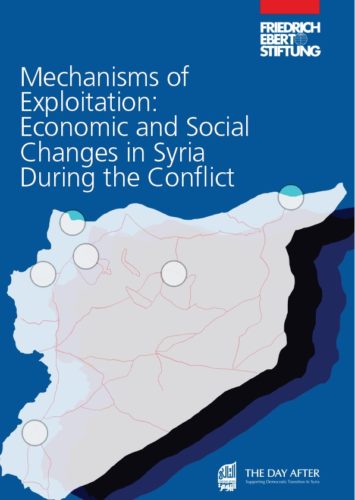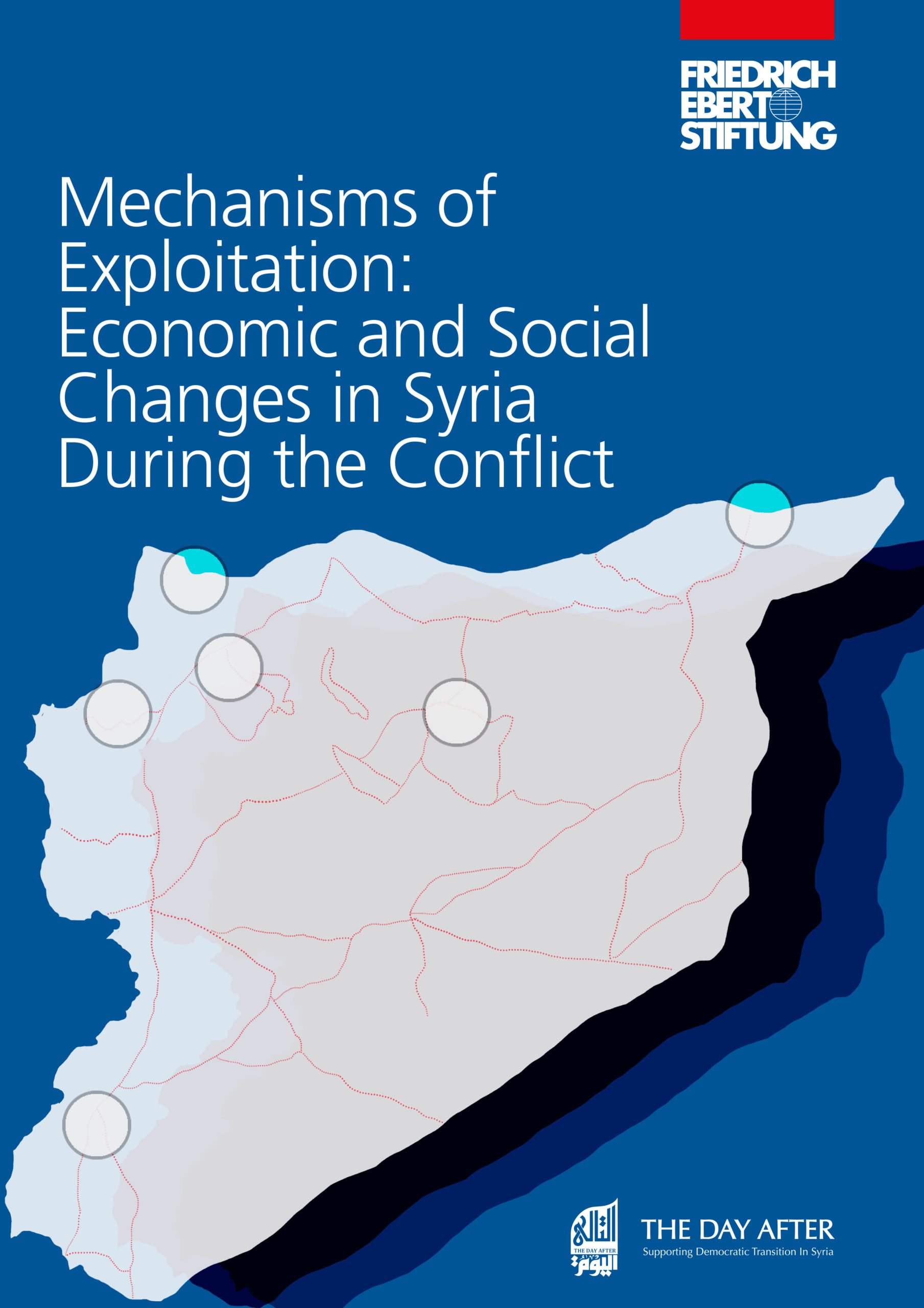
Date: October 2022
Read PDF: English / العربية
In March 2011, Syrians came out to protest the state of political, economic and social exclusion practiced by the Syrian regime. This demand was met with extreme violence by the regime. This laid the foundations for armed violence, external interventions, and entering the tunnel of the power struggle that has been going on for more than a decade, during which various de facto forces took control of different regions in Syria. These forces have developed exploitation mechanisms through which they exercise the process of transforming economic resources, which were already compromised as a result of the conflict and harnessing traditional social structures to serve their goals and achieve the sustainability of their authority at the expense of the interests of the majority of Syrians.
This research attempts to build on the understanding of these changes and mechanisms to reach policy and practical proposals that help Syrians not adapt to the current situation but rather change it in line with their aspirations to achieve inclusive development in various Syrian regions.
The research seeks to understand the mechanisms of exploitation adopted by the various de facto forces and links between these mechanisms and the authoritarian nature of the controlling forces on the ground, with a focus on the mechanisms of the authoritarian regime in Syria before the conflict and how it took hold after the conflict. This integrated analysis between the macro and the micro, with its link to the mechanisms of exploitation, contributes to providing practical policy recommendations that take into account the general context but also focus on the specificity of the different regions.
The research is divided into two main sections, the first analyzing the economic and social situation at the macro level in the various Syrian regions and the second analyzing the living situation at the level of the Syrian family by surveying a representative sample of six cities under different de facto authorities.
